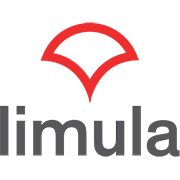CSEM has supported Lausanne-based start-up Limula in its mission to make cell therapies more affordable, and to facilitate access to these personalized treatments. The start-up’s technology enables the automated production of CAR T and other cell therapies at scale. With CSEM’s help, Limula has moved its technology beyond prototyping towards pre-industrial stage.
Cell and Gene Therapy (CGT) represents a revolution in healthcare. These ‘living drugs’ are often the only treatment option for patients with previously incurable conditions. With more than 2,000 different treatments in the pipeline, the industry expects the number of approved personalized therapies in the pipeline to explode in coming years. However, many patients may not benefit from these life-saving treatments because of their current limited availability. CGT production is also extremely complex and expensive, requiring specialized facilities with clean rooms and large teams of skilled laboratory technicians. As a result, the global capacity is limited to a few tens of thousands of doses per year, and every single batch can cost up to 2 million Euros – putting these cures out of financial reach for many patients who need them.
A single bioreactor for the entire manufacturing process
Lausanne-based Limula is bringing automation to the CGT industry with its highly innovative cell processing solution. While there are many different possible applications for their technology, the start-up is currently focusing on CAR-T cell therapy, which genetically modifies a patient’s immune cells to recognize and target cancer cells. The process involves isolating the patient’s own immune cells from the blood, processing them in a laboratory, and re-injecting them into the body.
Dr. Yann Pierson, the CTO of Limula has filed a patent describing an automated platform for processing patients’ immune cells that requires no manual intervention. He came up with the idea of a small bioreactor – with a volume of about one liter – that is part of a sterile, self-contained, disposable plastic kit and mounted on an operating unit. This mechatronic unit can perform all the steps required for the production of cell therapies, in sequence, in a fully closed system with in-situ centrifugation. The precious cell product – personalized for each patient – remains in a single container throughout the entire process. The device integrates multiple automation solutions, removing the need for manual intervention.
CSEM’s contribution – from prototype to pre-industrialization
The multi-disciplinary talented team from CSEM Tools for Life Science supported Limula in a project funded by the Swiss innovation agency Innosuisse. Their objective was to find the most suitable manufacturing process for large-scale industrial production of the bioreactor, while preserving its functionalities. As part of this collaboration, the two teams shared their knowledge on process requirements, design features and material biocompatibility. The project results consisted of a pre-industrial solution that is now used by Limula and its partners for cell therapy production testing. “This project is a typical example of the multidisciplinarity required in many regenerative medicine projects, when moving from a laboratory prototype to a pre-industrialized solution,” explains Diane Ledroit, Senior R&D Engineer Cell Microtechnologies at CSEM.
Bringing production closer to the patient
The market outlook is very promising, as more than 3 million patients could be treated with cell therapies each year, many of whom have no alternative treatments options. Luc Henry, CEO of Limula: “We want to provide a platform technology that supports the seamless transition from small-scale preclinical testing to large-scale manufacturing after approval. It will enable healthcare providers to safely produce more CGT treatment doses per square meter of cleanroom facility – and maybe one day to produce them in a decentralized fashion, directly at the hospital.” And Gilles Weder, Co-Head Research & Business Development Life Science Technologies at CSEM, emphasizes: “At CSEM, we are seeing an increased demand for the development of such pre-industrialized systems, especially for regenerative medicine applications.”

